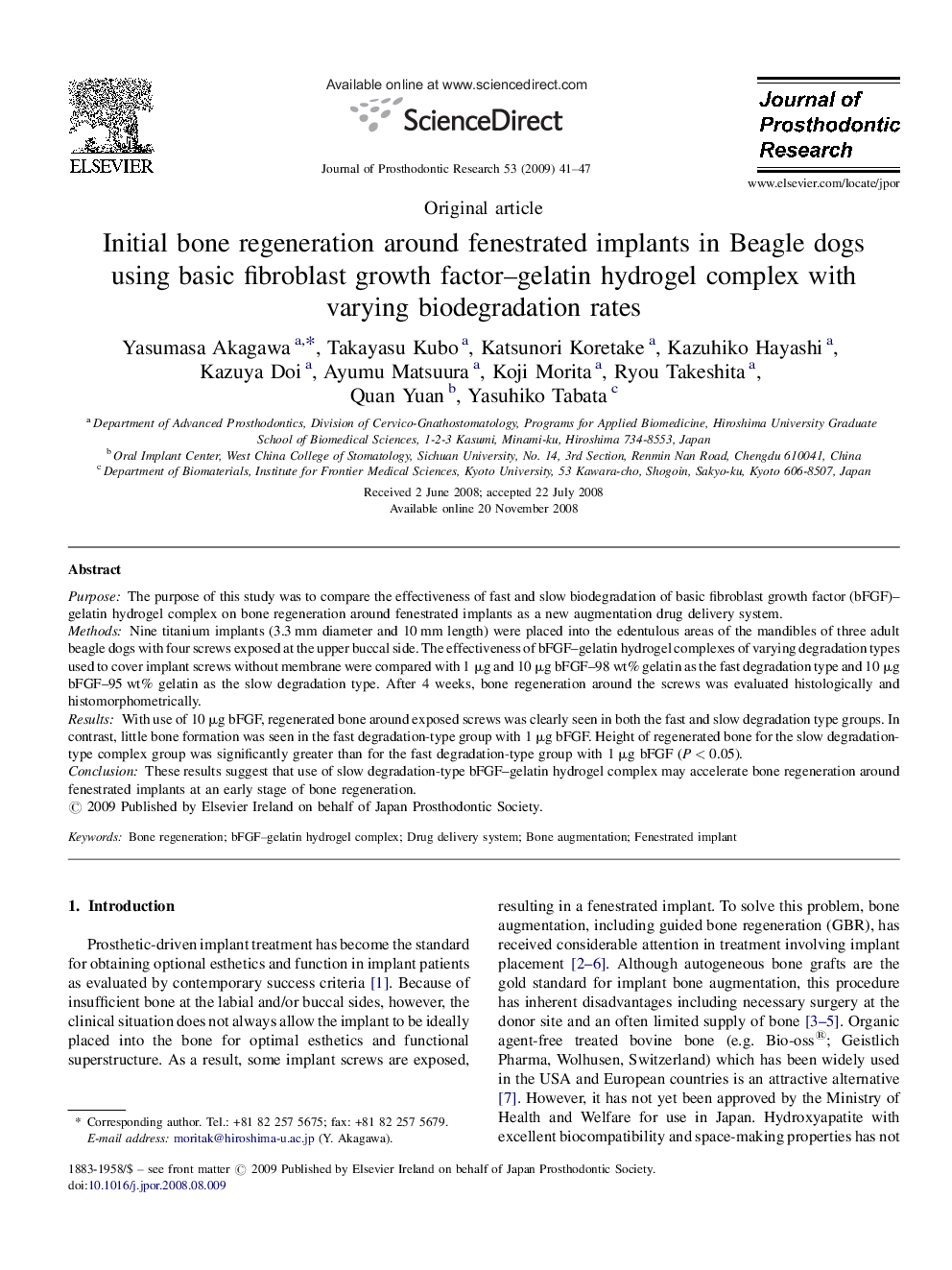| Article ID | Journal | Published Year | Pages | File Type |
|---|---|---|---|---|
| 3160746 | Journal of Prosthodontic Research | 2009 | 7 Pages |
PurposeThe purpose of this study was to compare the effectiveness of fast and slow biodegradation of basic fibroblast growth factor (bFGF)–gelatin hydrogel complex on bone regeneration around fenestrated implants as a new augmentation drug delivery system.MethodsNine titanium implants (3.3 mm diameter and 10 mm length) were placed into the edentulous areas of the mandibles of three adult beagle dogs with four screws exposed at the upper buccal side. The effectiveness of bFGF–gelatin hydrogel complexes of varying degradation types used to cover implant screws without membrane were compared with 1 μg and 10 μg bFGF–98 wt% gelatin as the fast degradation type and 10 μg bFGF–95 wt% gelatin as the slow degradation type. After 4 weeks, bone regeneration around the screws was evaluated histologically and histomorphometrically.ResultsWith use of 10 μg bFGF, regenerated bone around exposed screws was clearly seen in both the fast and slow degradation type groups. In contrast, little bone formation was seen in the fast degradation-type group with 1 μg bFGF. Height of regenerated bone for the slow degradation-type complex group was significantly greater than for the fast degradation-type group with 1 μg bFGF (P < 0.05).ConclusionThese results suggest that use of slow degradation-type bFGF–gelatin hydrogel complex may accelerate bone regeneration around fenestrated implants at an early stage of bone regeneration.
